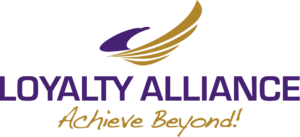Mark Cohen
It was a few days before Christmas in 2001 when I got the call. A former business partner from S&P (Standard and Poors) asked if I could help him create a web-based system for financial advisors at American Express. My role would be to run a User Experience Design project – to conduct ethnographic research to understand how advisors used similar software, learn what their pain points in doing their jobs were, and incorporate that into the overall front-end design of the website.
My answer, of course, was yes. Then I had to figure out how to deliver. You see, I was a sole contractor and could not do it alone. I said yes because I knew I could wrangle the resources, and I did. I reached out to a talented UX designer I worked with at a firm called Sapient when I was his client at Janus (now Janus Henderson), and we then found a talented UX lead to work with us.
On Christmas day, my soon-to-be client called from his mother-in-law’s basement, trying to be quiet because he knew he’d get in trouble for working on Christmas. He asked if I could please accept a $50,000 down payment on the project before the end of the year, as he had a “use it or lose it” budget, and he had to spend it down to get his full ask the following year.
That is how Foci, Focused Interaction was born.
We quickly moved into a tiny office above a pizzeria in Denver’s LoDo neighborhood. In one way, this was the worst possible scenario as the smell of pizza filled my native NYer heart with a pizza desire which a Colorado pie couldn’t satisfy. That aside, we got to work on an exciting project with an amazing client and launched a legendary digital agency.
Earlier in 2001 I had left my job at Janus, where I was hired to establish their first website and digital marketing platform. The Web was in its nascency, so we were literally creating the future of interaction and engagement with mutual fund companies on the Web. Simultaneously, I was creating processes, procedures and building a team to do all of this in a fairly staid, highly regulated financial services company.
While at Janus, I got involved in the greater Denver community by volunteering and being on non-profit boards and then applying for and being accepted into the Leadership Denver program.
By the time I left, I was looking for a job in academia because I was pretty burned out. As that was looking increasingly improbably, and with a severance package that was running dry, I decided to become a consultant. I felt confident making that decision as I‘d started three companies prior, including one of the first digital ad agencies in New York.
In just over a year, Foci had 30 employees and was one of the top 10 Web agencies in Denver. We enabled start-ups like Cache Matrix, an Institutional money-market trading portal that was sold to financial services giant Blackrock, supported non-profits like then-Mayor Hickenlooper’s 10 year plan to alleviate homelessness, and even became a go-to agency for Red Bull, where unbeknownst to us, we created websites that were mini-social networks for many of their sponsored events around the U.S. We became the darlings of the Denver digital scene; designers and coders alike wanted to work for us and we had two ad agencies who wanted to buy us. We were even on the verge of Mayor Hickenlooper proclaiming Foci day in the City of Denver. And that’s when the walls came crashing down.
Days before the Mayor’s proclamation, and only after I made sure all our employees had found jobs, with a heavy heart and uncertain future, I closed down Foci and left the office we built on Blake Street to the landlords, full of the company’s hard assets so we could break our lease.
Foci was a shooting star that shone so brightly that I was blinded by the light. Not only did my business crash, but so did my family. As the business had grown, I’d maintained too much individual responsibility and was unable to lead as I needed to for my business AND family.
I tell this story because of the numerous valuable lessons for entrepreneurs, a few of which I’ll share below:
1. Don’t burn bridges – Because I left Janus on good terms, they became a client. With Janus in hand, other financial services companies trusted us, trusted ME, to work with them. In fact, I recently was able to leverage my age-old relationships at Janus for professional purposes.
2. Build and nurture a professional network – this is critical to the success of a start-up. My community engagement helped with image, hiring, sales, and marketing. As I mentioned above, I’ve been able to tap my Denver friends and colleagues and their networks throughout my professional career since.
3. Play to your strengths – I had an ad agency background and was a pioneer in digital for financial services. Staying focused on that, at least at the start, was what enabled fast and profitable growth. On the flip side, if I had to do it over, I wouldn’t have worked with Red Bull or some of the other non-financial firms we took on as clients. We’d have grown more slowly, but that would have enabled me to do a better job at leading and developing other ideas I had for financial services, which would have enabled more stable and profitable future growth.
4. Secure trusted advisors – my biggest business mistake at Foci was to NOT listen to my friend Dave Ryan who, as an advisor, had helped Mike build Spire Media, Denver’s #1 digital agency at the time. Dave counseled me to have an advisory board, an idea I brought to my partner, but he shot it down. I should never have allowed that, as I am 100% certain that if we had an advisory board in place, we’d still be a thriving business today.
5. Go fast but slow down – as I did when I said yes to S&P, entrepreneurs have got to be nimble and decisive. However, as my colleague David Goldsmith likes to say, it is also IMPERATIVE to make time to think strategically. If I would have slowed down, I could have recognized what I do now: that I needed advisors and that I should have stayed focused on financial services. And so much more. Taking time to think and taking time to clear your mind is crucial – alongside moving nimbly and decisively.
6. There is no such thing as work-life balance – This single point is a blog I’ve wanted to write for years, but I’ll distill it down to this: work-life balance is like a sliding scale. On one side is work, the other life. The more you put into work, the less you put into life – and vice versa. When I started Foci, I was all work all the time, and my family life suffered. My wife reminded me a few years ago that on the day I adopted my son, I left the party early to go back to work. I DID NOT EVEN REMEMBER THAT, and I was appalled, and still am. Entrepreneurs MUST understand this and make the deal with themselves, their partners and their families that only they can determine. Which is it? Work or life? Many articles have been written about finding the balance, but I am here to tell you that if you think you have found balance, it’ll be when you’ll feel that both work and life are half-assed. So which one is more important to you? Which leads me to my takeaway.
7. You cannot and must not do it all – so many entrepreneurs feel that nobody does it better than them, so they take on too much and have to make the deal with the devil to focus primarily on work at all costs. I In my case, and I know this is true of many entrepreneurial ventures, we built the agency based on my expertise and reputation. I became CEO and CFO, leading the development and project management teams (my partner led creatives), was the primary project manager, and led marketing and sales. In fact, I was our only business developer. I wasn’t doing all that because I thought nobody else could (though I did feel that way about sales and marketing), it was more that I didn’t think we could afford to get too top heavy. We paid our employees well and had amazing benefits and I didn’t want to sacrifice that. I’m certain an advisory board would have felt otherwise. Regardless, we built the company and lasted three years, but it clearly wasn’t sustainable. Any wonder why the life side of the equation suffered and why the business crashed and burned?
I am fortunate to say that I was somehow able to rebuild both my professional life and my family life. I am proud of what we did accomplish. but the sting of the magnitude of our fall will always be there. I can only hope that the lessons I learned can help other entrepreneurs as you pursue your business dreams.
I’d love to hear your stories and am here to answer any and all questions about this and other entrepreneurial experiences I have had.

